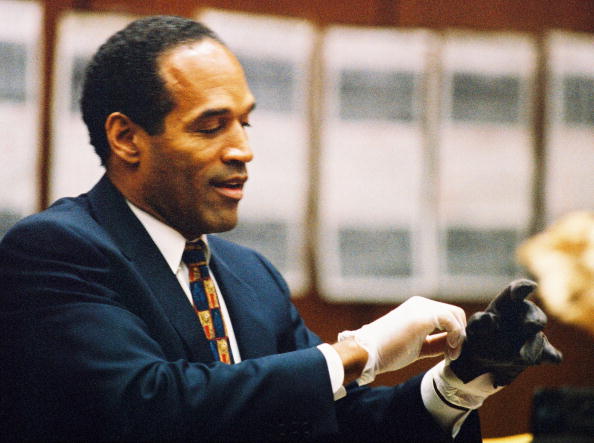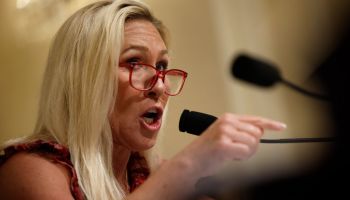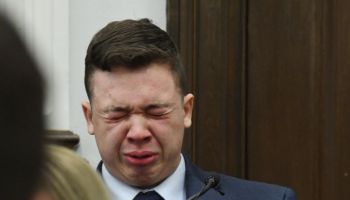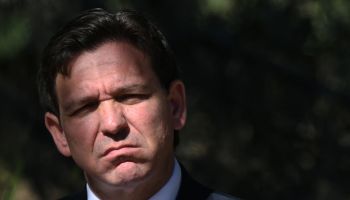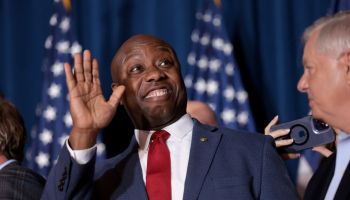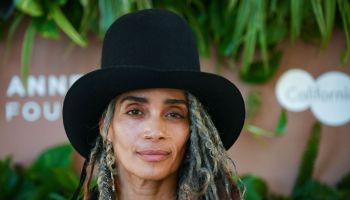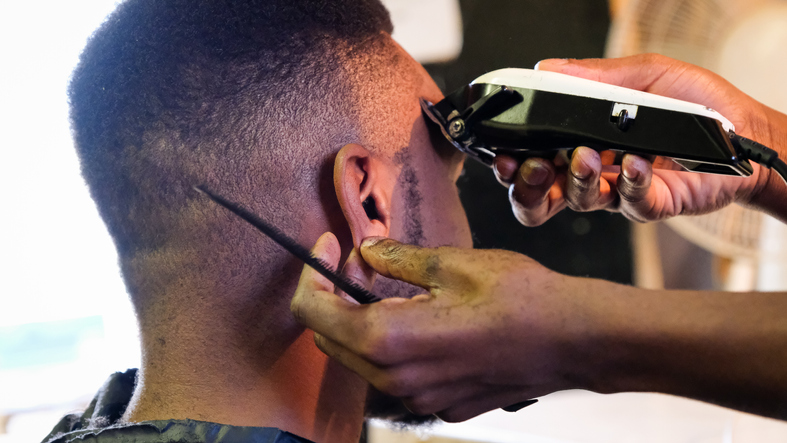
Source: nattrass / Getty
Across the country, protests to reopen businesses in the midst of the coronavirus pandemic have involved guns rights activists, Donald Trump supporters and white supremacists. Many of the protests have defied stay-at-home mandates, social distancing orders and recommendations to wear protective face-wear. Meanwhile, Black communities continue to be disproportionately hit by the coronavirus.
Considering these facts, some might think it’s easy to join people like Atlanta Mayor Keisha Lance Bottom in urging people to stay home if you’re not an essential worker. However, according to the testimony of Black small business owners, particularly barbers, staying home presents more of a dilemma, especially when our government isn’t providing the assistance needed.
According to The New York Times “200 publicly traded companies that have disclosed receiving a total of more than $750 million in bailout loans” in the midst of the coronavirus and business shutdowns. The loans were apart of the Paycheck Protection Program (PPP), which came out of the economic rescue package Trump signed into law last month. It included $349 billion in low-interest loans for small businesses and was supposed to help “prevent small companies — generally those with fewer than 500 employees in the United States — from capsizing as the economy sinks into what looks like a severe recession,” said the Times.
However, within days of the program’s initiation, it was plagued with problems, many of which affected Black small businesses. “Based on how the program is structured, we estimate that upwards of 90% of businesses owned by people of color have been, or will likely be, shut out of the Paycheck Protection Program,” explained Ashley Harrington, director of federal advocacy and senior council for the Center for Responsible Lending, a non-profit organization that fights abusive lending practices. The group recently went over the loan program’s parameters.
They continued, “Roughly 95% of Black-owned businesses, 91% of Latino-owned businesses, 91% of Native Hawaiian or Pacific Islander-owned businesses, and 75% of Asian-owned businesses stand close to no chance of receiving a PPP loan through a mainstream bank or credit union.”
While numerous small businesses were cut out of the program, large companies received millions of dollars in aid, some of which are connected to Trump. According to The Intercept, much of the PPP loans have gone to the head of companies who donated to Trump’s campaign such as Archie Bennett and his son Monty Bennett, who run a set of luxury hotels.
Meanwhile, Black barbers are one group of small business owners who’ve made it clear that they are struggling, according to CNN Business.
“There’s probably all kinds of barbershops talking about what’s going on with our government right now,” said Mike Knuckles, a barber at Select Cutz in Grand Prairie, Texas. “If you lose a barbershop that’s been in the community 30 years and has a tradition and respect in the community, that’s huge.”
Damon Dorsey, the president of the American Barber Association, also echoed the stress of barbers nationwide. The ABA is a barber advocacy group whose estimated membership of 3,000 is around 30 percent Black. Dorsey said he’s spent weeks discussing the current situation with worried barbers nationwide. He explained that they’re concerned about preventing the spread of COVID-19, but they also want to “get back to making money.”
“All are struggling with the uncertainty of the moment,” he added.
Now that Georgia has allowed the reopening of barbershops and hair salons, despite pushback from some Black-owned businesses, many barbers are choosing to reopen.
Craig Logan, the co-owner of Dre and Craig’s VIP Cuts in the Atlanta suburbs, estimated that 85% of the Black barbershop owners he knows decided to reopen their business last Friday. However, Logan opted out, considering his cousin and aunt recently recovered from COVID-19 after being hospitalized. He also said he and his co-owner decided to stay closed because of public pressure.
“I agree with the general sentiment even though, like everybody else, I wanted to get back to work,” Logan said.
Dennis Mitchell, who owns Denny Moe’s Superstar Barbershop in Harlem, New York, said he normally pays his landlord thousands of dollars for rent each month. Once the coronavirus and New York shutdowns started, he’s been unable to pay, especially since nine other barbers who work at his spot are independent contractors who rent their chairs. Since they haven’t been paying their rent since March 28 when Mitchell shuttered his business, he is stuck in a bad financial situation.
“It’s kind of bone chilling,” Mitchell said. “I have an apartment I have to pay for as well and people who depend on me to put food on the table. … A lot of [black business owners] are not going to come back from this.”
According to the Times, because the initial PPP ran out of money, Congress approved an additional $310 billion in funding that will start applications on Monday. Unless specific demands are made to support Black businesses during the pandemic, Black small businesses owners will, once again, be an afterthought.
SEE ALSO:
